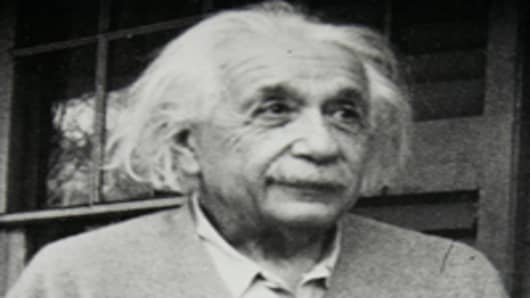"Why do I get my best ideas," Einstein asked, "in the morning while I'm shaving?"
Getting ideas is mysterious, even if you're Einstein. But he paid attention and noticed clues: morning, shaving.
What clues have you noticed?
If you ask people how they get their best ideas, you'll discover:
1) A lot of people don't know. That's a problem. It means you have zero control.
2) Others mention certain activities: showering, driving, walking, running, knitting, gardening. These actions are familiar, repetitive and mindless—unless you try to do them all at once.
3) No one says, "I get my best ideas at work."
You also discover that a lot of scientific discoveries and inventions occurred when the thinker was asleep.
Do you ever sleep on a problem?
There's wisdom in that—it gives different parts of your brain a chance to engage.
One inventor, stuck on a problem, dreamt he'd been captured by cannibals who were cooking him up in a cauldron. He couldn't escape, the cannibals had spears.
But then he noticed something unusual about those spears—they had holes in the tips. And eureka, Elias Howe invented the modern sewing machine.
Think of the creative process as three steps: 1) Immersion 2) Incubation 3) Illumination–that's one common description.
The trick is to move back and forth between immersion (focused attention) and incubation (relaxed not-thinking).
Incubation is hard if you like to obsess. (And who doesn't?) But it's critical.
Listen to Don Draper, the Creative Director of an ad agency in the TV show "Mad Men," instruct one of his copywriters on the three steps (season 1, episode 11):
"Just think about it deeply. Then forget it. Then an idea will jump up in your face."
Tip: One of the smartest ways to think is, surprisingly—not to.
______________________________________________
Consultant, author, speaker, and founder of express potential® (www.expresspotential.com), Paul Hellman has worked with CEOs, executives, and managers at leading companies for over 25 years to improve performance and productivity at work. His latest book is “Naked at Work: How to Stay Sane When Your Job Drives You Crazy,” and his columns have appeared in the Wall Street Journal, New York Times, Washington Post and other leading papers.
Comments? Send them to executivecareers@cnbc.com


